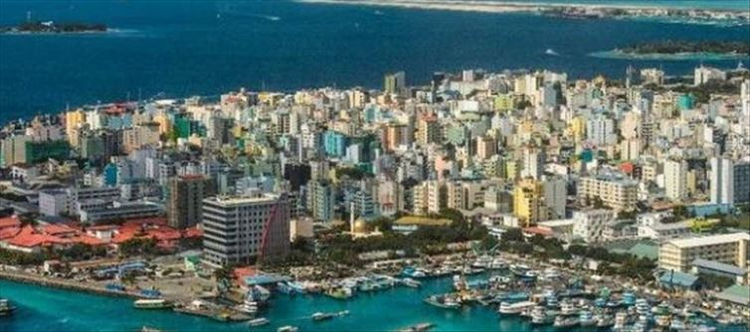
The fact that this nation, which formerly had Buddhist and Hindu kings, now forbids Hindu temples may surprise you. This nation is still largely dependent on india for basic commodities like crops and water, even if their relationship has been erratic. What nation is this, and why aren't Hindu temples permitted there? The maldives is the nation in dispute. The Maldivian Constitution mandates that all of its people must be Muslims. The establishment of a Hindu temple in the nation is difficult because of the severe rules that prohibit non-Islamic religious symbols, rituals, and places of worship.
A small country with strict religious laws
Thousands of foreign workers, mostly from india and Sri Lanka, work in the hospitality, healthcare, and education sectors in the maldives, which has a population of around 550,000. Despite having a multinational workforce, the nation rigidly enforces its religious rules, making it practically difficult to celebrate Hindu holidays or rituals in public.
With a land size of just 298 square kilometers, the maldives is a very small country. Delhi, the capital of india, is about five times larger than the maldives (1,483 sq km), and even Puducherry, a tiny indian union territory, is larger (492 sq km).
Why Hindu temples are not allowed in Maldives
Strict legal, religious, and constitutional regulations prohibit the construction of Hindu temples in the Maldives. The 2008 amendment to the Maldivian Constitution states that the republic is entirely Islamic. Article 9 states that only Muslims are eligible to be citizens of the maldives and that it is completely forbidden to practice, promote, or publicly exhibit any other religion. Hindu temples, churches, gurdwaras, and other non-Islamic houses of worship are thus prohibited from being constructed in the Maldives.
No public worship or religious activities
The constitution was changed to guarantee that only mosques are permitted in the nation in order to strengthen this regulation. Hindus are prohibited from publicly practicing their religion or engaging in open religious ceremonies while they are in the maldives, even if they are only there temporarily. There are reportedly between 1,500 and 2,000 Hindus who work in the maldives, however, they are not allowed to publicly celebrate their holidays or do any rituals.
Secret worship by Hindus
In the maldives, religious meetings and idol worship are prohibited due to stringent regulations. Hindu expats refrain from openly expressing their faith and instead worship in private within their houses. Furthermore, it is challenging to import religious symbols and artifacts because they are not readily available in the nation. Authorities closely inspect airports in the maldives for religious symbols, and if they are discovered, they have the authority to seize them. Penalties, incarceration, or even deportation may result from breaking these religious regulations.
No Citizenship For Non-Muslims
Foreign workers are permitted temporary residency in the maldives, although non-Muslims are not eligible for citizenship. There are no public facilities offered by the government for religious activities other than Islam. In the maldives, it is illegal to encourage or take part in any non-Islamic religious activity. Those found in violation of these laws may be deported, fined, or imprisoned. No group or person tries to construct a Hindu temple in the nation as a result of this stringent regulation.
Despite the Maldives' popularity as a travel destination, Hindu visitors are not permitted to carry religious symbols or materials for worship because of stringent airport regulations.




 click and follow Indiaherald WhatsApp channel
click and follow Indiaherald WhatsApp channel